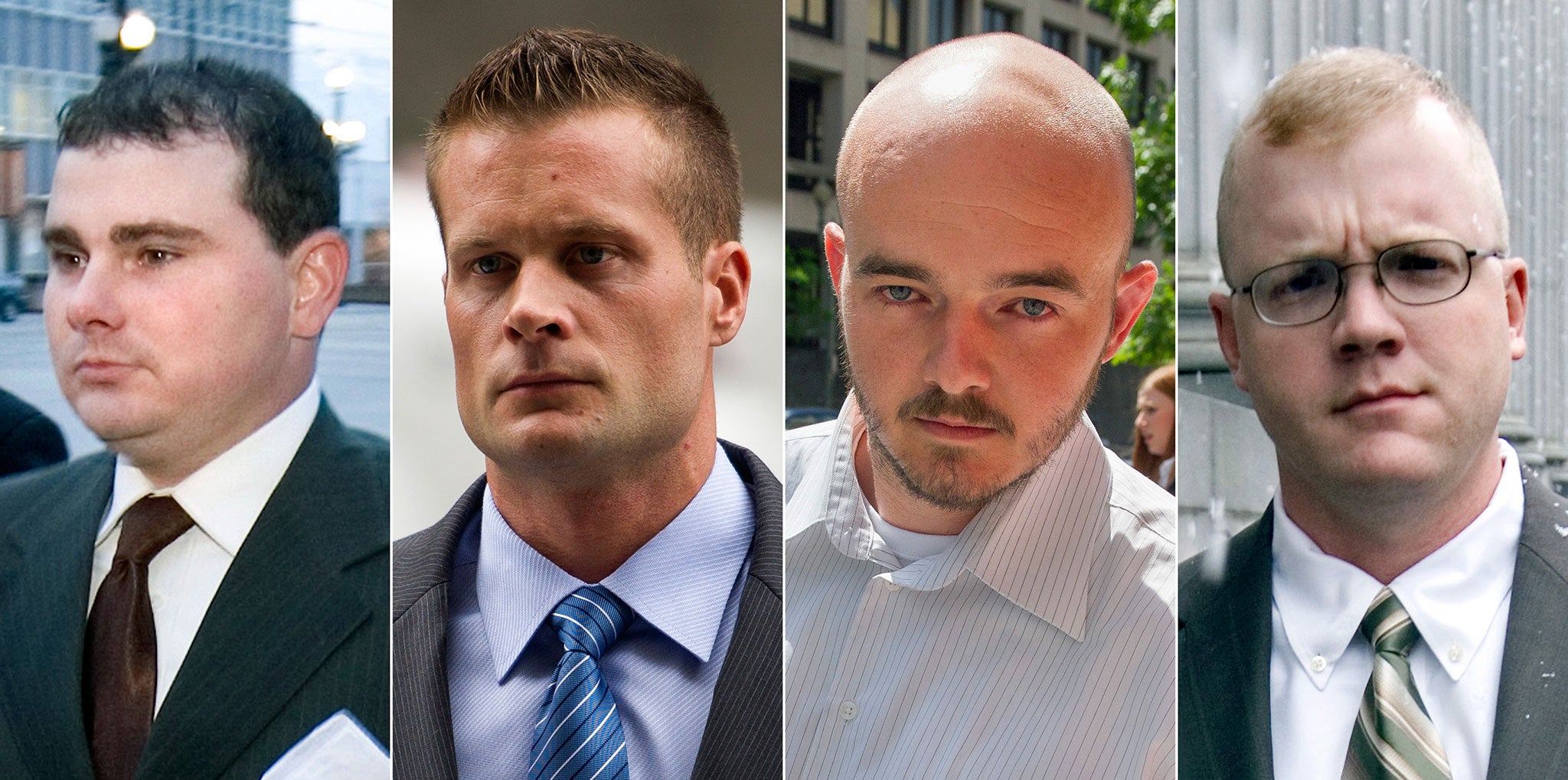Blackwater murder conviction thrown out by US appeals court
US appeals court also overturns three other sentences in connection with the killing of 14 Iraqis

Your support helps us to tell the story
From reproductive rights to climate change to Big Tech, The Independent is on the ground when the story is developing. Whether it's investigating the financials of Elon Musk's pro-Trump PAC or producing our latest documentary, 'The A Word', which shines a light on the American women fighting for reproductive rights, we know how important it is to parse out the facts from the messaging.
At such a critical moment in US history, we need reporters on the ground. Your donation allows us to keep sending journalists to speak to both sides of the story.
The Independent is trusted by Americans across the entire political spectrum. And unlike many other quality news outlets, we choose not to lock Americans out of our reporting and analysis with paywalls. We believe quality journalism should be available to everyone, paid for by those who can afford it.
Your support makes all the difference.A US appeals court has thrown out the murder conviction of one Blackwater guard and overturned the sentences of three others in connection with the killing of 14 Iraqis in 2007.
Nicholas Slatten, Paul Slough, Dustin Heard and Evan Liberty – former guards for Blackwater, a private military company contracted by the US State Department – were sentenced in 2015 for their involvement in the killings.
Mr Slough, Mr Heard, and Mr Liberty were sentenced to 30 years in prison for multiple counts of manslaughter, attempted manslaughter, and using firearms while committing a felony. Mr Slatten was sentenced to life in prison for murder.
Now, a US appeals court has thrown out Mr Slatten’s murder conviction, saying he should have been tried separately from his colleagues. The three-judge panel ordered a retrial, where Mr Slatten will be allowed to present previously inadmissable evidence.
The court also overturned the three other guards' sentences, saying their length constituted "cruel and unusual punishment”.
The four guards formed part of a Blackwater convoy that travelled through Baghdad’s Nisour Square in 2007. In an effort to clear the square, the guards opened machine gun fire on the civilians gathered there. Witnesses described the scene as "awful" and "like a horror movie". Fourteen Iraqis were killed, and 17 were injured.
The guards argue they were under fire from insurgents. No witness has supported this claim in trial.
Mr Slatten was convicted for the murder of a man driving a white Kia that pulled into the square. The government maintains that Mr Slatten’s shots ignited the chaos that ensued.
The court, however, pointed to testimony from Mr Slatten’s co-defendant saying he was not the one to fire the first shots. The testimony had been inadmissible at trial.
“The co-defendant’s statements ... strike at the heart of that theory and instead point to the co-defendant, not Slatten, as the Blackwater convoy member who first ‘engaged and hit the driver’,” the court wrote.
The decision renews a years-long court battle over the incident, which raised serious questions about the military's accountability in Iraq.
The four guards were originally charged in 2008, but their convictions were overthrown after a judge ruled that prosecutors had used evidence inadmissible in court. The case was renewed by a federal appeal in 2013, and the men were sentenced in 2014.
Blackwater Worldwide, which had been awarded more than $1bn in government contracts, became the subject of scrutiny during the case. In 2007, Congress passed a bill that would make all military contractors subject to prosecution by US courts. In 2009, the State Department elected not to renew its contract with the private security company.
Founder Erik Prince sold the company in 2009, after which it changed its name to Xe Services, and then Academi. Mr Prince, the brother of Education Secretary Betsy DeVos, recently submitted a proposal to the Afghan government develop a private air force.
Join our commenting forum
Join thought-provoking conversations, follow other Independent readers and see their replies
Comments